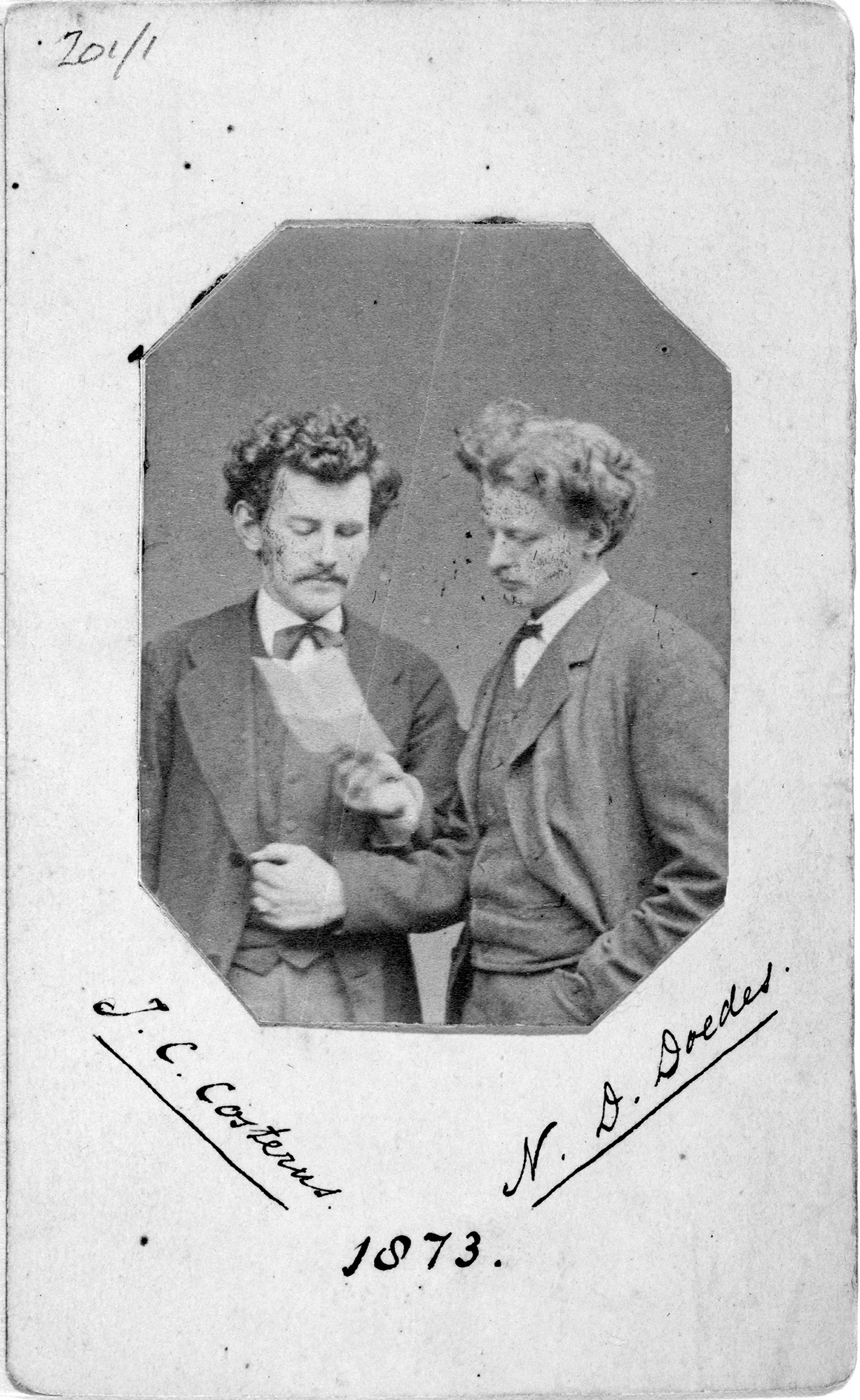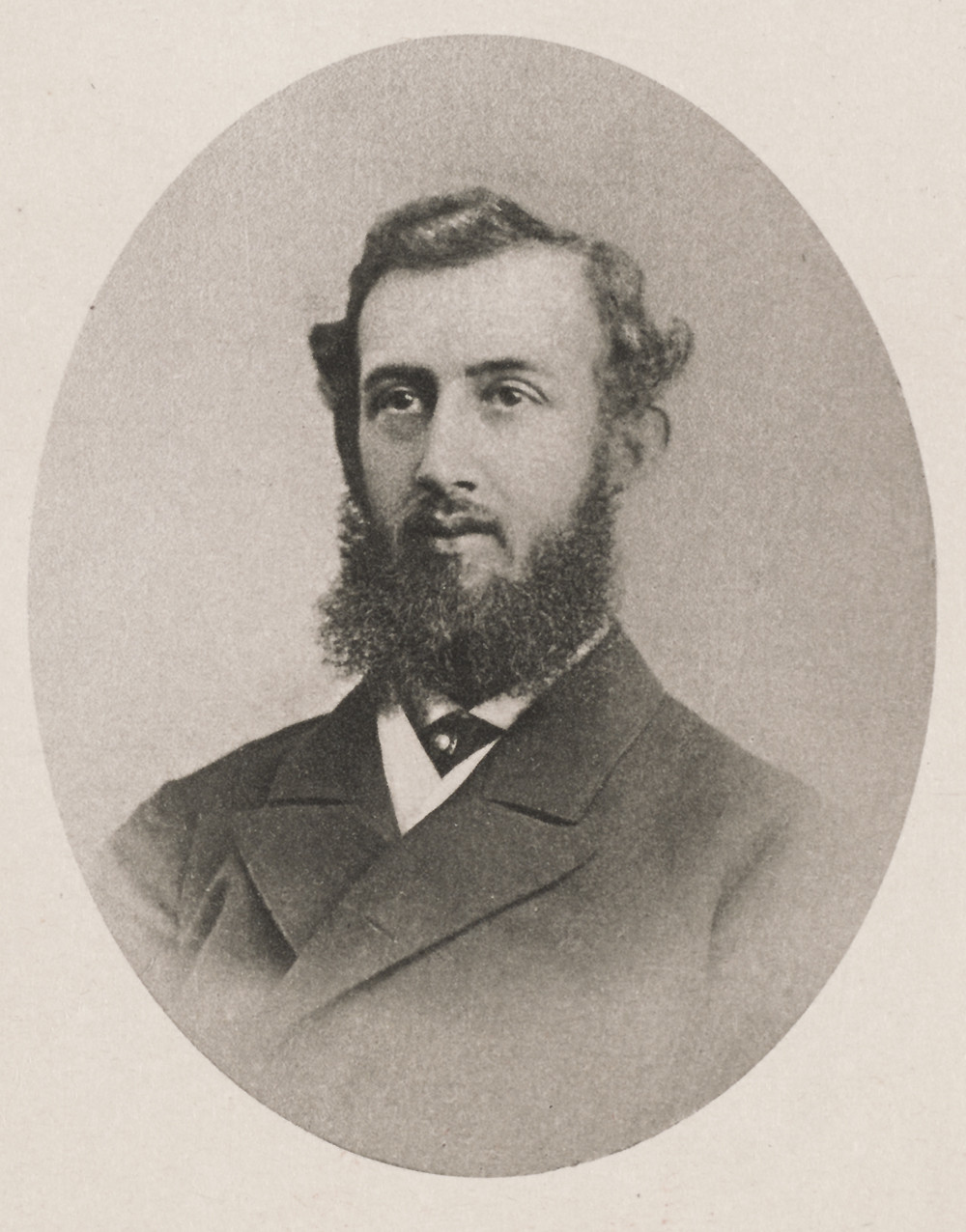Bad Request
Your browser sent a request that this server could not understand.
Apache Server at dcp-public.lib.cam.ac.uk Port 443

Darwin's in letters, 1873: Animal or vegetable?
Summary
Having laboured for nearly five years on human evolution, sexual selection, and the expression of emotions, Darwin was able to devote 1873 almost exclusively to his beloved plants. He resumed work on the digestive powers of sundews and Venus fly traps, and…
Matches: 22 hits
- … evolution, sexual selection, and the expression of emotions, Darwin was able to devote 1873 almost …
- … (1875) and Cross and self fertilisation (1876). Darwin’s son Francis became increasingly …
- … renouncing plans for a medical career to become his father’s scientific secretary. Darwin had always …
- … the previous year. As was typical, readers wrote to Darwin personally to offer suggestions, …
- … some of which were incorporated in a later edition. Darwin also contributed to discussions in the …
- … The subject was brought closer to home by Francis Galton’s work on inherited talent, which prompted …
- … efforts to alleviate the financial troubles of Anton Dohrn’s Zoological Station at Naples. …
- … I omitted to observe, which I ought to have observed” ( letter to J. D. Hooker, 12 January [1873] …
- … work your wicked will on it—root leaf & branch!” ( letter from J. D. Hooker, 12 January 1873 ) …
- … copy of the Handbook for the physiological laboratory (1873), a detailed guide to animal …
- … parts of the flower would become modified & correlated” ( letter to T. H. Farrer, 14 August …
- … it again, “for Heaven knows when it will be ready” ( letter to John Murray, 4 May [1873] ). …
- … we take notes and take tracings of their burrows” ( letter from Francis Darwin, 14 August [1873] ) …
- … for Francis to rent a house in the village (Down Lodge), and Emma rejoiced that they could now go to …
- … early April by Katharine Murray Lyell in conversation with Emma Darwin, and Darwin began to sound …
- … “I’m to starve sweat & purge it away” ( letter from G. H. Darwin, [1 October 1873] ). He also …
- … some little happiness & enjoyment in life” ( letter to G. H. Darwin, 5 March [1873] ). Darwin …
- … “It is a good omen for the future” ( letter to G. H. Darwin, 2 August [1873] ). But he was more …
- … world his opinions on the deepest subjects?” ( letter to G. H. Darwin, 21 October [1873] ). Darwin …
- … into difficulties, however, with the vicar, George Sketchley Ffinden, who had been appointed in 1871 …
- … and 19 December 1873 ). Ffinden replied tersely to Emma Darwin, stating that he objected to …
- … “most strongly on public grounds” ( letter from G. S. Ffinden to Emma Darwin, 24 December 1873 ). …

Darwin and the Church
Summary
The story of Charles Darwin’s involvement with the church is one that is told far too rarely. It shows another side of the man who is more often remembered for his personal struggles with faith, or for his role in large-scale controversies over the…
Matches: 20 hits
- … The story of Charles Darwin’s involvement with the church is one that is told far too rarely. It …
- … unique window into this complicated relationship throughout Darwin’s life, as it reveals his …
- … belief (and doubt) than many non-conformist denominations. Darwin’s parents attended a Unitarian …
- … A nominal adherence to the Anglican Church’s teachings was still essential for admittance to many of …
- … the necessary studies to be a clergyman. During Darwin’s lifetime, the vast majority of the …
- … with the pursuit of scientific interests. Indeed, Darwin’s Cambridge mentor, John Stevens Henslow, …
- … & I can see it even through a grove of Palms.—’ (letter to Caroline Darwin, 25–6 April [1832] …
- … wrote to the contrary: ‘I am sorry to see in your last letter that you still look forward to the …
- … near the British Museum or some other learned place’ (letter from E. A. Darwin, 18 August [1832] …
- … it is a sort of scene I never ought to think about—’ (letter to W. D. Fox, [9–12 August] 1835 ). …
- … the late 1830s, and in correspondence with his fiancée, Emma Wedgwood, in 1838 and 1839, as can be …
- … of England. The whole family took the sacrament, although Emma used to make the children turn around …
- … and Charles were buried; later Darwin’s brother Erasmus, Emma’s sister Sarah, Emma herself, and …
- … church involvement can be attributed to the influence of Emma, whose religious scruples are …
- … However, what remains is cordial; in the first extant letter of the correspondence, Darwin wrote to …
- … Innes’s approval the reins passed to George Sketchley Ffinden. Darwin’s relationship with …
- … informed Darwin that though he ‘heard all good of M r . Ffinden’s moral character, his clerical …
- … Innes, 5 June 1871 ). Particularly in the early days of Ffinden’s tenure, Innes continued to keep …
- … (letter to Down School Board, [after 29 November 1873] ). Ffinden fiercely resented Darwin for …
- … Press in association with Nova Pacifica. Paz, D. G., ed. 1995. Nineteenth-century English …

Darwin in letters, 1875: Pulling strings
Summary
‘I am getting sick of insectivorous plants’, Darwin confessed in January 1875. He had worked on the subject intermittently since 1859, and had been steadily engaged on a book manuscript for nine months; January also saw the conclusion of a bitter dispute…
Matches: 24 hits
- … Editions Plants always held an important place in Darwin’s theorising about species, and …
- … his periods of severe illness. Yet on 15 January 1875 , Darwin confessed to his close friend …
- … way to continuous writing and revision, activities that Darwin found less gratifying: ‘I am slaving …
- … bad.’ The process was compounded by the fact that Darwin was also revising another manuscript …
- … coloured stamens.’ At intervals during the year, Darwin was diverted from the onerous task of …
- … the controversy involved a slanderous attack upon Darwin’s son George, in an anonymous review in …
- … V). Darwin remained bitter and dissatisfied with Mivart’s attempts at conciliation, and spent weeks …
- … On 8 January , he told Hooker: ‘I will write a savage letter & that will do me some good, if I …
- … of London, and a secretary of the Linnean Society, Darwin’s friends had to find ways of coming to …
- … the publisher of the Quarterly Review , in which Mivart’s anonymous essay had appeared. ‘I told …
- … to the Editor … Poor Murray shuddered again & again’ ( letter from J. D. Hooker, 16 January …
- … feel now like a pure forgiving Christian!’ Darwin’s ire was not fully spent, however, for he …
- … offered to pay the costs for printing an additional 250 ( letter to John Murray, 3 May 1875 ). …
- … & bless the day That ever you were born (letter from E. F. Lubbock, [after 2 …
- … that the originally red half has become wholly white’ ( letter from G. J. Romanes, [before 4 …
- … pp. 188–90). He drew attention to this discussion in a letter to George Rolleston, remarking on 2 …
- … heavily on his son Francis, who had made the decision in 1873 to abandon his medical studies and …
- … of a review of William Dwight Whitney’s work on language (G. H. Darwin 1874c). George had taken the …
- … knowledge wd. allow me.’ thorns in Mr Ffinden’s side Tempers flared …
- … the authority of the Church. After becoming vicar in 1871, Ffinden had opposed their efforts, and …
- … and the Darwins did not warm thereafter. On 24 December , Emma wrote triumphantly to the former …
- … the upper ranks of society could be especially taxing. As Emma remarked in a letter to William on 1 …
- … Henry Eeles Dresser. ‘The horror was great’, Henrietta Emma Litchfield wrote to her brother Leonard …
- … on the digestive properties of Nepenthes since 1873. ‘You are aware that Dr Hooker has worked …

Darwin in letters, 1874: A turbulent year
Summary
The year 1874 was one of consolidation, reflection, and turmoil for Darwin. He spent the early months working on second editions of Coral reefs and Descent of man; the rest of the year was mostly devoted to further research on insectivorous plants. A…
Matches: 22 hits
- … 1874 was one of consolidation, reflection, and turmoil for Darwin. He spent the early months working …
- … dispute over an anonymous review that attacked the work of Darwin’s son George dominated the second …
- … been the naturalist and traveller Alexander von Humboldt’s 105th birthday, Darwin obliged with a …
- … be done by observation during prolonged intervals’ ( letter to D. T. Gardner, [ c . 27 August …
- … pleasures of shooting and collecting beetles ( letter from W. D. Fox, 8 May [1874] ). Such …
- … And … one looks backwards much more than forwards’ ( letter to W. D. Fox, 11 May [1874] ). …
- … Andrew Clark, whom he had been consulting since August 1873. Darwin had originally thought that …
- … was an illusory hope.— I feel very old & helpless’ ( letter to B. J. Sulivan, 6 January [1874] …
- … inferred that he was well from his silence on the matter ( letter from Ernst Haeckel, 26 October …
- … allowed ‘a spirit séance’ at his home ( letter from T. G. Appleton, 2 April 1874 ). Back …
- … had suggested a new edition of the coral book in December 1873, when he realised the difficulty a …
- … vol. 21, letter to Smith, Elder & Co., 17 December [1873] ). Darwin himself had some trouble …
- … conciseness & clearness of your thought’ ( letter from G. H. Darwin, 20 April 1874 ). …
- … of human evolution and inheritance himself. In August 1873, he had published in the Contemporary …
- … the spread of various mental and physical disorders (G. H. Darwin 1873b). In July 1874, an anonymous …
- … over the ‘scurrilous libel’ on his son ( letter to G. H. Darwin, [27 July 1874] ). George, …
- … scurrilous accusation of [a] lying scoundrel’ ( letter to G. H. Darwin, 1 August [1874] ). He …
- … satisfaction. Assisted in the wording by his wife, Emma, and daughter Henrietta, he finally wrote a …
- … a comfortable cabin ( see letter from Leonard Darwin to Emma Darwin, [after 26 June -- 28 September …
- … to become Darwin’s secretary. They rented Down Lodge and Emma Darwin wrote, ‘They have . . . made …
- … the average in prettiness & snugness’ ( letter from Emma Darwin to J. B. Innes, 12 October …
- … the Darwins had with the vicar of Down, George Sketchley Ffinden, including one over the use of the …


